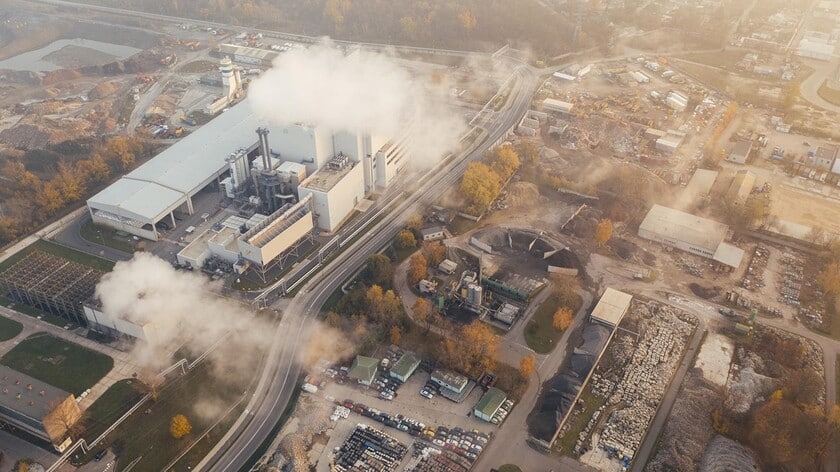
ISSB aims to improve and enhance climate reporting
Recently there has been more attention drawn to corporate climate reporting, as climate disclosures can look good in an annual report, but they do not necessarily mean that a rapid change is being achieved. Moreover, environmental data regarding businesses does not have a universally acknowledge unit of measurement and a lot of companies and organizations had created their own frameworks.
As one can imagine, because of this, comparisons between companies are not effortless.
Due to these reasons, the International Financial Reporting Standards Foundation, the setter of IFRS’s accounting standards, has announced the creation the International Sustainable Standards Board. This board will have the goal of creating standards for environmental, social and governance (ESG) reporting.
To achieve its objective, the new institution will collaborate with the Task Force on Climate-Related Financial Disclosures, an organization which aims to quantify firms’ impact on the environment and society.
Since its establishment, the International Sustainable Standards Board has released two proposals, one which address sustainability concerns and the other which address climate disclosures.
The restriction of rules on climate reporting has not been taken by all investors in the same way. Some investors are welcoming the changes, while others fear that companies will not apply the new rules, being that some of them still fail to fully disclose on the materiality of environmental factors, even when required to do so by existing financial disclosure standards.
The ISSB wants to create a methodology for reporting data that captures a company’s carbon footprint throughout supply chain and product use, other than direct emissions. These so-called Scope 3 emissions are difficult to assess and have gotten a mellower treatment from policymakers thus far.
The US, the UK and the EU have already been going towards stricter disclosure rules but there is still a lot that can be done.
Some sustainability experts, however, believe that the most effective legislative initiatives would simply avoid the necessity for dedicated climate disclosures.
Former BlackRock global head investment officer for sustainable investing Tariq Fancy, for example, has long advocated for economic incentives, such as the imposition of a carbon tax and industry-specific regulation, rather than relying on market pressures to reduce corporate carbon emissions.
Climate and other sustainability disclosures, according to Alison Taylor, teacher at NYU Stern School of Business, may assist investors in making portfolio decisions, but they may have minimal impact on climate change mitigation. Although the ISSB climate proposal requires corporations to declare if they plan to use carbon offsets, they could still use them to satisfy climate targets without improving their fundamental business model.
Source: https://www.ft.com/content/92882c63-f1aa-422e-b829-deacaa249873
Author: Clarissa Colella
ISSB aims to improve and enhance climate reporting
Recently there has been more attention drawn to corporate climate reporting, as climate disclosures can look good in an annual report, but they do not necessarily mean that a rapid change is being achieved. Moreover, environmental data regarding businesses does not have a universally acknowledge unit of measurement and a lot of companies and organizations had created their own frameworks.
As one can imagine, because of this, comparisons between companies are not effortless.
Due to these reasons, the International Financial Reporting Standards Foundation, the setter of IFRS’s accounting standards, has announced the creation the International Sustainable Standards Board. This board will have the goal of creating standards for environmental, social and governance (ESG) reporting.
To achieve its objective, the new institution will collaborate with the Task Force on Climate-Related Financial Disclosures, an organization which aims to quantify firms’ impact on the environment and society.
Since its establishment, the International Sustainable Standards Board has released two proposals, one which address sustainability concerns and the other which address climate disclosures.
The restriction of rules on climate reporting has not been taken by all investors in the same way. Some investors are welcoming the changes, while others fear that companies will not apply the new rules, being that some of them still fail to fully disclose on the materiality of environmental factors, even when required to do so by existing financial disclosure standards.
The ISSB wants to create a methodology for reporting data that captures a company’s carbon footprint throughout supply chain and product use, other than direct emissions. These so-called Scope 3 emissions are difficult to assess and have gotten a mellower treatment from policymakers thus far.
The US, the UK and the EU have already been going towards stricter disclosure rules but there is still a lot that can be done.
Some sustainability experts, however, believe that the most effective legislative initiatives would simply avoid the necessity for dedicated climate disclosures.
Former BlackRock global head investment officer for sustainable investing Tariq Fancy, for example, has long advocated for economic incentives, such as the imposition of a carbon tax and industry-specific regulation, rather than relying on market pressures to reduce corporate carbon emissions.
Climate and other sustainability disclosures, according to Alison Taylor, teacher at NYU Stern School of Business, may assist investors in making portfolio decisions, but they may have minimal impact on climate change mitigation. Although the ISSB climate proposal requires corporations to declare if they plan to use carbon offsets, they could still use them to satisfy climate targets without improving their fundamental business model.
Source: https://www.ft.com/content/92882c63-f1aa-422e-b829-deacaa249873
Author: Clarissa Colella
RELATED
Regulatory Developments in ESG Reporting and Their Implications for Businesses
The focus on Environmental, Social, and Governance (ESG) factors has surged, leading to significant regulatory changes worldwide. Key developments include the EU’s Corporate Sustainability Reporting Directive (CSRD), the US SEC’s...
Read MoreThe Earthshot Prize 2022
The Earthshot Prize 2022 The Earthshot prize is an award given to five winners that created some projects that could help our planet face some of the most important challenges...
Read More

